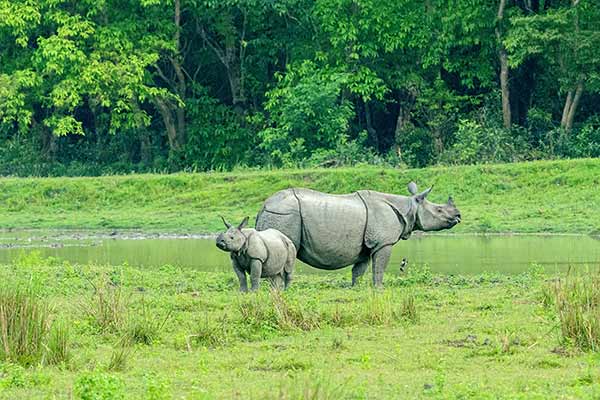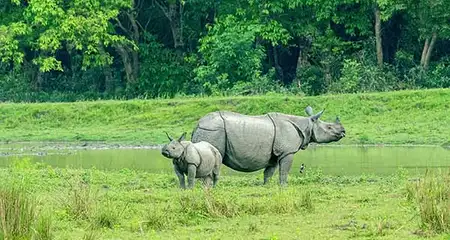Located in the northeastern region of the country, Assam is known for its natural beauty, rich history, and cultural heritage. The state is blessed with mighty rivers, green valleys, majestic hills, wild forests, tea plantations, and rich fauna and flora. It is one of the top destinations for wildlife tourism in India. Assam also serves as a gateway for tourists to reach the seven sister states in Northeast India, namely Arunachal Pradesh, Meghalaya, Manipur, Mizoram, Sikkim, Tripura, and Nagaland.
According to statistics by Assam Tourism Development Corporation Ltd., 5,934,791 domestic tourists and 31,739 international tourists visited the state in the year 2018. There are over 500 renowned hotels in Assam till date. These include luxury hotels and resorts, convention centers, and budget hotels in and around the magnificent Brahmaputra. These hotels cater to domestic and international tourists and are mainly concentrated around the city of Guwahati and district towns of Jorhat, Nagaon, Dibrugarh, Tinsukia, Barpeta, Silchar, Sivasagar and Karimganj.
Assam Tourism Information
| Capital | Dispur |
| Official Language | Assamese, Bengali, and Bodo |
| Area | 78,438 square kilometer |
| Main Cities | Guwahati, Dispur, Tezpur, Silchar, Dibrugarh, Jorhat, Tinsukia, Nagaon, Bongaigaon |
| Status | State |
| Official Tourism Website | http://www.assamtourismonline.com/ |
| Nicknames | Gateway to the Northeast |
| Major Railheads | Guwahati Railway Station (GHY), Dibrugarh Railway Station (DBRG), Kamakhya Junction Railway Station (KYQ), New Tinsukia Junction (NTSK) |
| Airport | International – Lokpriya Gopinath Bordoloi International Airport or Guwahati International Airport (GAU); Domestic – Dibrugarh Airport (DIB), Silchar Airport (IXS), Jorhat Airport (JRH), Lilabari Airport (IXI), and Tezpur Airport (TEZ) |
History of Assam
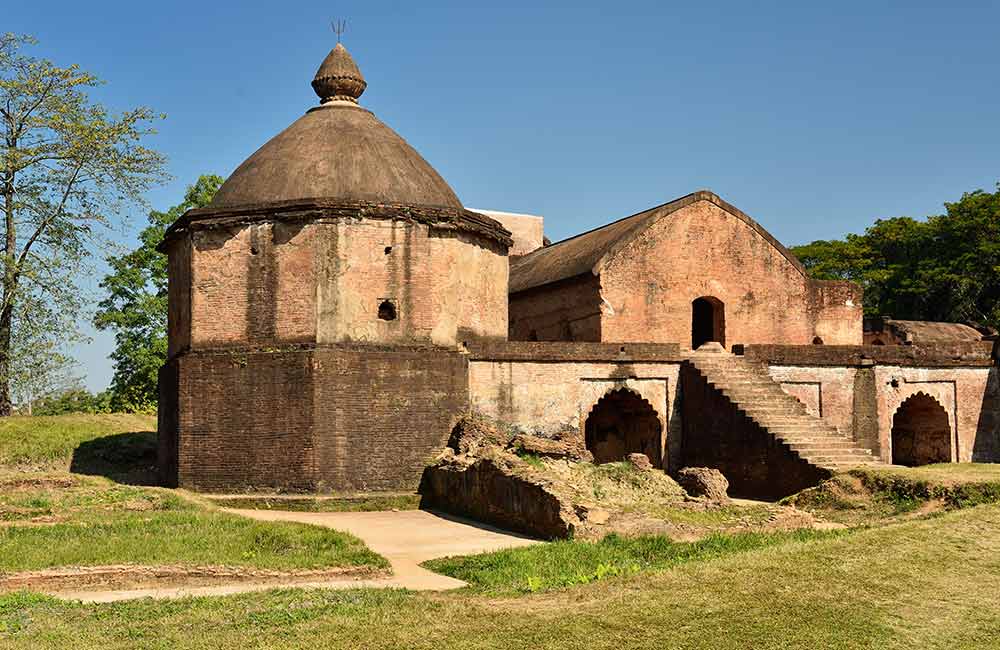
History of Assam | Assam Tourism
Assam was ruled by many dynasties of which the Ahom were probably the most important and influential. The region was invaded by a number of rulers but, it was not colonized until 1821 when the third Burmese invasion took place. Three years later, after the First Anglo-Burmese War in 1824, the British took control of the region. By 1854, all of Assam came under the British rule as part of the Bengal Presidency. After the initial partition of Bengal, Assam was made part of Eastern Bengal and a few years later in 1912, Bengal was reunited and Assam was made an independent province. In 1950, Assam became part of the Republic of India.
Geography and Climate
Assam, a state in Northeast India, shares an international border with Bhutan to the north and Bangladesh in the south. Domestically, it shares a border with Arunachal Pradesh in the north, Manipur and Nagaland in the east, West Bengal in the west and Meghalaya, Mizoram and Tripura in the south. This state has three of the six physiographic divisions of India including the Eastern Hills (Northern Himalayas), the Brahmaputra plain (Northern Plains) and Karbi Anglong (Deccan Plateau). The Brahmaputra is the main river flowing through the state.
Assam has a tropical monsoon rainforest climate characterized by high humidity and heavy rain. The best time to visit Assam is between the months of March and April and from September to October. It is best to avoid visiting the state during the monsoon season.
Places to Visit in Assam
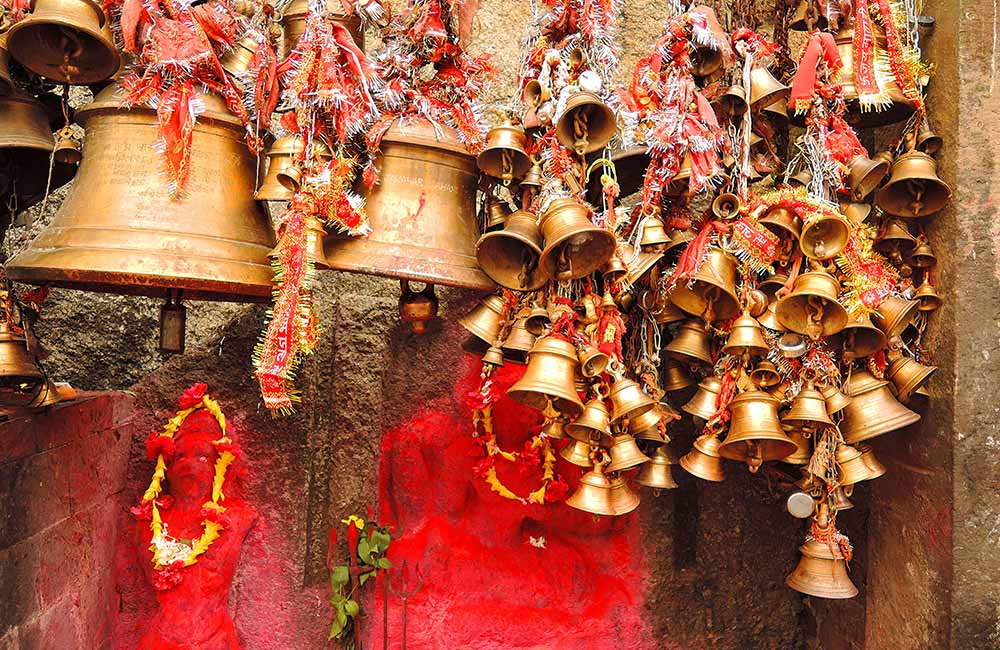
Places to Visit in Assam | Assam Tourism
- Temples: Kamakhya Temple, Bhuvaneswari Temple, Basistha Ashram Temple, Hayagriva Madhava Temple, Ugro Tara Temple, Umananda Temple, Navagraha Temple, Janardana Temple, Bageshwari Temple, Lalmati Duramari Ganesh Temple
- Wildlife Sanctuaries and National Parks: Kaziranga National Park, Manas National Park, Assam State Zoo, Pobitora Wildlife Sanctuary, Deepor Beel, Orang National Park, Kachugaon Game Reserve, Kakaijana Wildlife Sanctuary
- Museums: Sankardev Kalashetra, Ahom Museum, Assam State Museum
- Historical Places: Lachit Garh, Garh Doul, Kareng Ghar, Talatal Ghar
- Lakes: Haflong Lake, Chandubi Lake, Dighalipukhuri, Dipor Bil, Son Beel, Dalu Lake, Dihing Lake
- Others: Guwahati Planetarium, Nehru Park
Cuisine of Assam
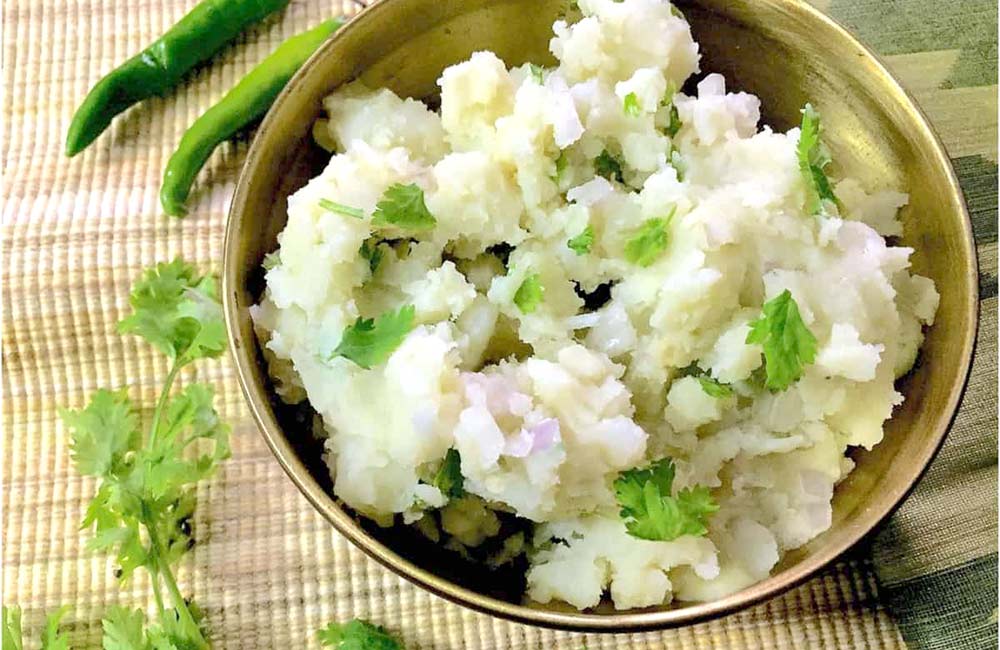
Cuisine of Assam | Assam Tourism
Assamese cuisine is known for minimal use of spices. Some of the most popular Assamese delicacies include Khaar, Duck Curry, Aloo Pitika, Maasor Tenga, Ou Khatta, Xaak Aru Bhaji, Paro Manxho, Baanhgajor Lagot Kukura, Silkworm and Pitha. A meal is generally concluded with paan or raw betelnut. Rice is used not just for cooking but to brew, Xaj Pani, a local beer.
Shopping in Assam

Shopping of Assam | Assam Tourism
Assam is famous for its handicrafts, tea, and handlooms. There are plenty of places to shop for souvenirs while you’re here. Some of the best things to buy and take back from Assam are:
- Tea
- Assamese silk
- Bamboo jewelry
- Cane artifacts
- Pottery
- Woodcraft
- Brass and bell metal curios
- Terracotta
- Traditional paintings
- Pickles
- Handmade dolls
- Singing bowls
- Phulam gamusa
- Traditional masks
Things to Do in Assam
- Visit the parks and sanctuaries
- Take an elephant safari
- Take a ferry ride across the Brahmaputra
- Walk through the tea gardens
- Take part in Bihu festivities
- Watch handloom weavers at work
- Go bird watching
- Try your luck at angling
- Go river rafting down the Jia Bhorali River
- Witness the tea festival in Jorhat
- Have a picnic on Peacock Island
- Experience rock climbing
- Shop at local markets
May be you like this to read – Things to do in Guwahati
How to Reach Assam
 By Air: Assam has six airports that connect the state to the rest of India. Guwahati’s Lokapriya Gopinath Bordoloi International Airport is the main airport and the 11th busiest airport in the country. The airport serves direct and connecting flights from most major Indian destinations as well as international ones like Singapore, Bangkok, and Kathmandu. The other five are domestic airports operating flights to and from a few metro cities in India and other parts of Assam.
By Air: Assam has six airports that connect the state to the rest of India. Guwahati’s Lokapriya Gopinath Bordoloi International Airport is the main airport and the 11th busiest airport in the country. The airport serves direct and connecting flights from most major Indian destinations as well as international ones like Singapore, Bangkok, and Kathmandu. The other five are domestic airports operating flights to and from a few metro cities in India and other parts of Assam.
 By Rail: Assam falls into the Northeast Frontier Railway zone. There are direct trains from New Delhi, Calcutta, Mumbai, Bangalore, Chennai, Trivandrum, and Cochin. The Rajdhani Express is the fastest train from New Delhi to Guwahati and the Saraighat Express is the fastest train from Howrah to Guwahati.
By Rail: Assam falls into the Northeast Frontier Railway zone. There are direct trains from New Delhi, Calcutta, Mumbai, Bangalore, Chennai, Trivandrum, and Cochin. The Rajdhani Express is the fastest train from New Delhi to Guwahati and the Saraighat Express is the fastest train from Howrah to Guwahati.
 By Road: Assam is connected to the rest of India through the narrow Siliguri corridor. Roads within the state and those connecting it to neighboring states are well-developed. The main National Highways in the state are NH 31, 37, 38, 40 and 52. AC and non-AC private buses as well as buses run by the Assam State Transport Corporation (ASTC) ply regularly on these highways connecting urban and rural areas of the state. Tourists can also hire private taxis to travel through Assam by road.
By Road: Assam is connected to the rest of India through the narrow Siliguri corridor. Roads within the state and those connecting it to neighboring states are well-developed. The main National Highways in the state are NH 31, 37, 38, 40 and 52. AC and non-AC private buses as well as buses run by the Assam State Transport Corporation (ASTC) ply regularly on these highways connecting urban and rural areas of the state. Tourists can also hire private taxis to travel through Assam by road.


